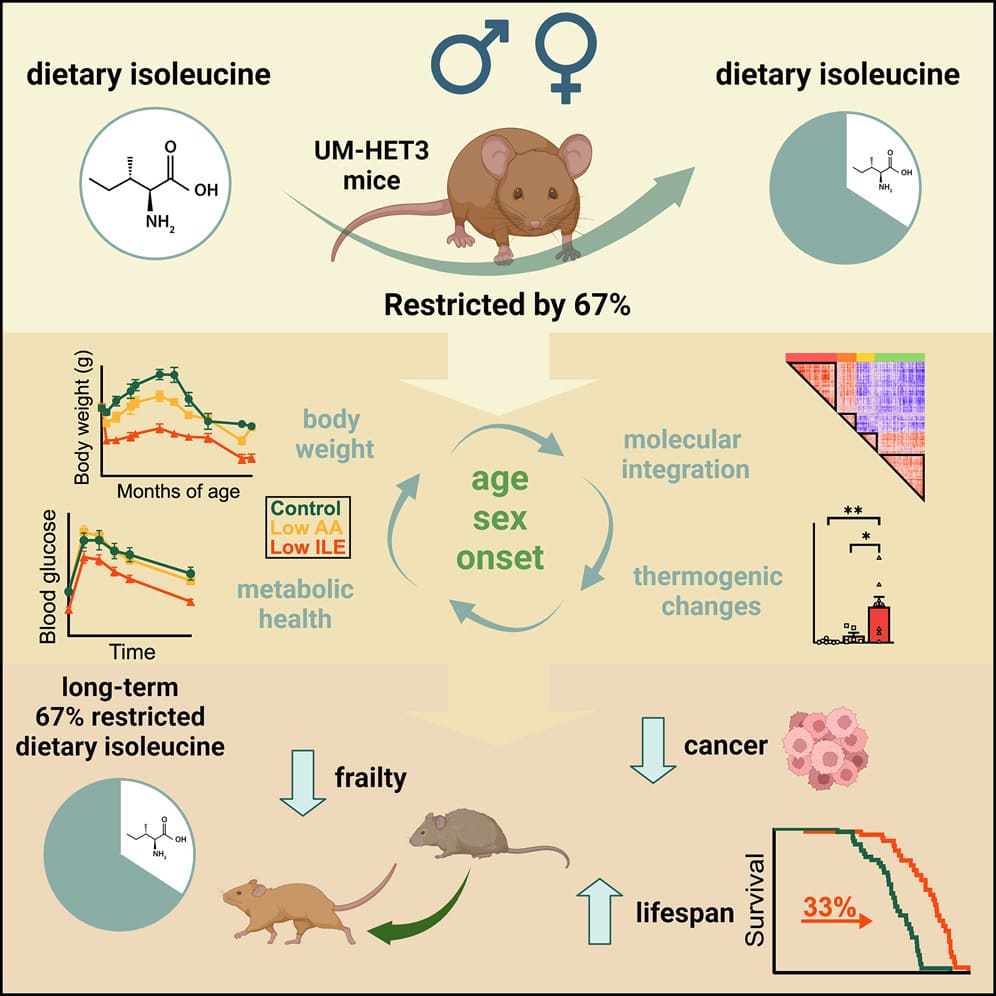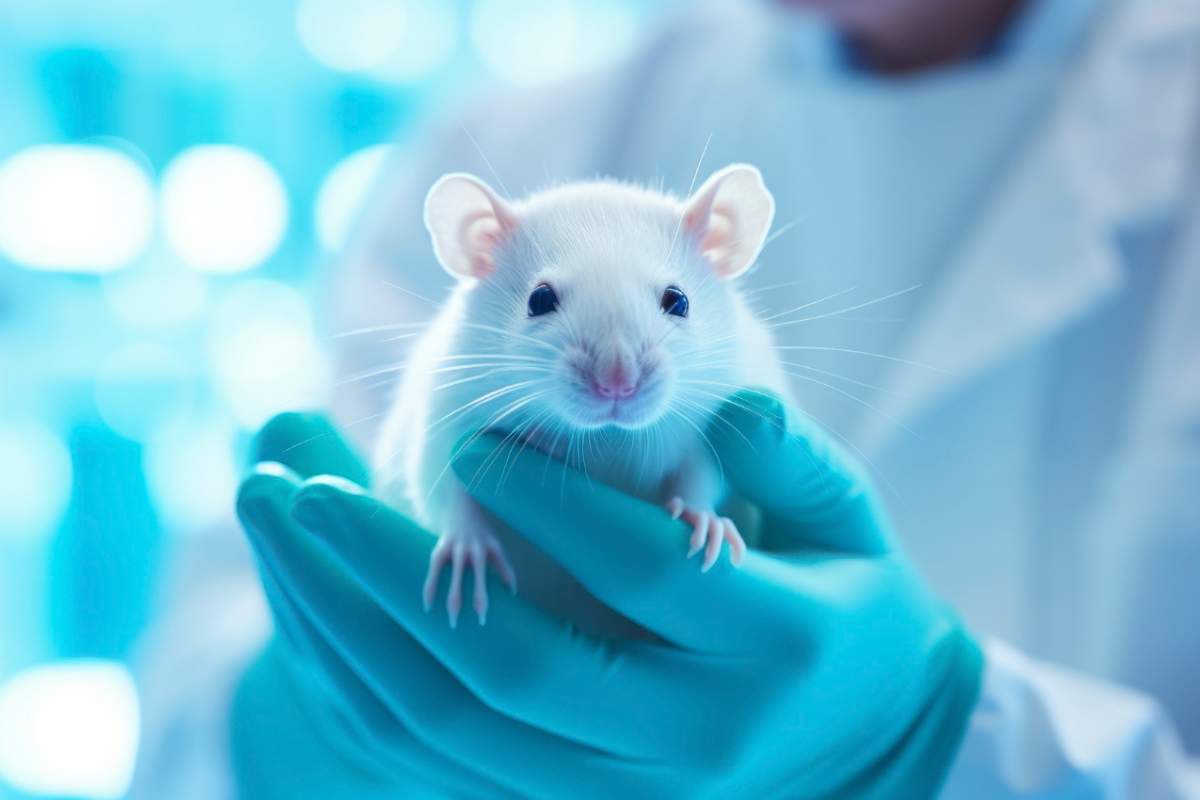We’ve all fantasized about it – living longer, staying younger, and outsmarting the inescapable passage of time. For thousands of years, the search for the elixir of youth has intrigued human beings, prompting an abundance of myths, legends, and nowadays, systematic scientific investigation. Though we may not yet have found an elixir of life, thrilling new research is throwing light on how we may lengthen our lifespan and, more significantly, our healthspan – the time when we are well and full of life.
The Enduring Pursuit of Longevity
The field of aging research is a dynamic and rapidly evolving one. Scientists across the globe are diligently working to unravel the complex mechanisms that govern how and why we age. From studying the intricate workings of our cells to analyzing the impact of our environment and lifestyle, the goal is to identify factors that can help us live longer and healthier lives.
Among the numerous pathways investigated, diet has always stood out as an influential force in determining the aging process. We’ve progressed beyond mere calorie counting to realizing the immense role that certain nutrients play in our lifespan. Consider all the hype around calorie restriction, intermittent fasting, and the impact of macronutrients such as carbohydrates, fats, and proteins. Now, an interesting new study is focusing on one particular aspect of protein: amino acids.
Enter Isoleucine: A Small Molecule with Great Promise?
Amino acids are the protein’s building blocks, crucial to a wide range of bodily activities, from tissue repair to the manufacture of essential enzymes and hormones. Of the twenty general amino acids, three are distinguished under their branched chain configuration: leucine, isoleucine, and valine. These are referred to as branched-chain amino acids (BCAAs), and they’ve been the focus of significant research as a result of their involvement in metabolism and potential impact on aging and age-related illness. While earlier studies tended to examine the overall effect of BCAAs, researchers are now coming to understand that each one may have its unique effect on the aging process.
This brings us to our hero: isoleucine. This necessary amino acid, i.e., our bodies can’t synthesize it by themselves, needs to be acquired via our diet. You can have it in different foods such as eggs, milk, soy protein, and meat of various types. Notably, previous research suggested a link between isoleucine and our metabolic health. Some studies even hinted at a link between increased isoleucine intake and greater body mass index in humans. Additionally, depriving animals of isoleucine yielded positive results in terms of metabolic markers of obesity. This raised the question: might isoleucine have a more substantial function within the larger framework of aging and longevity, more specifically in the fight against age-associated metabolic deterioration?
The Pioneering Mouse Study: An Inside Look
A new study that appeared in the high-profile journal Cell Metabolism has presented some simply incredible findings regarding this very question. Scientists were concerned with the effects of limiting dietary isoleucine on the health span and lifespan of genetically heterogeneous middle-aged mice. Why genetically heterogeneous mice? Because they are a better model for examining human aging, which is also marked by tremendous genetic diversity.
The experiment started when the mice were six months old – middle age for them, about equivalent to a human being 30 years old. The mice were split into three groups, and each group had a different diet:
- The Control Group: These mice were fed a normal diet with a balanced mix of 20 typical amino acids.
- The Low Amino Acid Group: This group had a diet in which the levels of all 20 typical amino acids were lowered by about two-thirds.
- The Low Isoleucine Group: In this diet, the level of isoleucine alone was lowered by two-thirds (a whopping 67% reduction) relative to the control diet.
Most importantly, all the mice had unrestricted access to their designated food, so they could consume as much as they pleased. This setup enabled the researchers to isolate the effects of isoleucine restriction specifically, as opposed to merely the effect of overall calorie restriction. The addition of the low amino acid group was also essential to see if the benefits observed were isoleucine-specific or merely due to lower overall protein consumption.
A Phenomenal Expansion of Life: Particularly for the Males!
The findings were nothing short of miraculous. The low isoleucine male group saw a phenomenal 33 percent expansion of their mean lifespan over that of the control group. That’s quite a longevity jump!
Female mice in the low isoleucine group also experienced a benefit, with an average lifespan increase of 7 percent over the control group. Although less spectacular than the males, it was still a statistically significant gain.
Curiously, the low amino acid diet, in which all amino acids were lowered, did not result in a significant increase in lifespan for either male or female mice.
This central discovery highly implies that the longevity advantage seen was not simply the result of consuming less protein in general, but was particularly attributable to the isoleucine restriction.
The large disparity in lifespan extension between male and female mice also hints at the involvement of sex-specific biological processes, which would be an area to explore further.
Improved Healthspan: Being Well for Longer
But it doesn’t end there with just living longer. The researchers also saw a striking improvement in the health span of the isoleucine-restricted mice. These mice performed better on a whopping 26 different measures of health. These tests included everything from:
- Improved muscle strength and endurance
- Improved blood sugar level regulation
- Improved tail use (a marker of neurological health)
- Decreased hair loss
In addition, the low isoleucine male mice had less age-related prostate hypertrophy and fewer cancerous tumors, conditions that are prevalent in this specific strain of mice.
Interestingly, both the low amino acid and low isoleucine diets led to a decrease in frailty index scores, indicating that limiting amino acid intake overall can enhance overall physiological resilience.
However, only the particular restriction of isoleucine resulted in a remarkable extension of lifespan.
These general health improvements in the parameters suggest that restriction of isoleucine has a systemic effect on the aging process, not only affecting how long the mice lived but also the quality of the extended years.
The Calorie Conundrum: Eating More to Live Longer?
One of the most surprising results of the study was that the low isoleucine diet mice ate many more calories than the control and low amino acid groups. This indicates that the mice may have been attempting to make up for the lower level of isoleucine in their diet.
But even though they ate more, these mice did not gain weight.
In fact, they spent more energy, resulting in the preservation of leaner body weights without any perceivable change in their physical activity levels.
They also had more stable blood glucose levels than the control group. This unexpected metabolic reaction defies the popular misconception that consuming greater amounts of calories always results in weight gain and worse metabolic health. It appears that limiting isoleucine induces a fundamental change in how the body burns energy, in favor of calorie burning and inducing leanness, independent of the overall number of calories eaten.

Unraveling the Mechanisms: How Does Isoleucine Restriction Work?
To gain insight into the biological mechanisms underlying these astonishing benefits, the researchers explored how isoleucine restriction influenced major cellular pathways known to be implicated in aging.
One key pathway is the mTOR (mammalian target of rapamycin) pathway, which is central to cell growth, metabolism, and aging.
Amino acids, such as isoleucine, are known to stimulate mTOR signaling.
The researchers discovered that the low isoleucine diet inhibited the age-related elevation in the activity of this pathway in the livers of male and female mice. This is consistent with the established effects of other lifespan-extending interventions, which implies that there is a shared underlying mechanism based on the regulation of cellular growth and metabolism. The scientists also noted that the low isoleucine diet strongly suppressed the activity of the MAPK ERK signaling pathway in the livers of older mice. This pathway has been shown to increase with age and is commonly suppressed by longevity-promoting interventions. Notably, the research revealed that older control mice possessed lower levels of proteins linked to cap-independent translation (CIT), a cellular process significant to resilience. Interestingly, the low isoleucine diet raised the levels of these proteins, indicating that it could be extending lifespan via this pathway as well. In addition, the researchers discovered that the limitation of isoleucine assisted in regulating lipid metabolism in the liver, which might shift its tendency towards enhanced fat burning, a mechanism often associated with lifespan extension.
Lastly, the research showed elevated levels of FGF21, a hormone that is involved in energy balance and life extension, in the mice fed either the low isoleucine or the low amino acid diets. This implies an expanded metabolic impact of amino acid restriction that may be responsible for the health and longevity benefits that were observed.
Isoleucine Restriction in Context: How Does It Compare?
Though the low amino acid diet in this study also produced some health benefits, like lower frailty, it did not extend lifespan. This indicates that the particular limitation of isoleucine is important for realizing the lifespan extension seen, and merely lowering total protein intake will not suffice. This emphasizes how critical the precise ratio of amino acids in our diet is.
Calorie restriction (CR), which is a common diet intervention, has been found to prolong lifespan and enhance health span across a range of species.
The present research on isoleucine restriction bears some resemblance to CR, including enhanced metabolic health and leanness induction.
A major distinction, though, is that the mice from the isoleucine-restricted group consumed more calories.
This implies that isoleucine restriction may offer a means of obtaining some of the advantages of CR without the necessity of reduced overall calorie intake, which could be a more long-term solution for supporting healthy aging.
From Mice to Humans: What Does This Mean for Us?
The results from this mouse research are tantalizing and provide hopeful insights into the possibility of dietary manipulation involving specific amino acids to affect human aging and longevity. But it’s important to note that taking these results directly and applying them to human health advice is complicated.
Human diets are extremely varied, and the long-term consequences of isoleucine restriction in human beings require close study.
Additionally, as isoleucine is an essential amino acid, drastically cutting it back could carry adverse health repercussions. Aware of these issues, researchers posit that future research could look at creating pharmaceutical interventions, for example, the medication that would specifically block the uptake of isoleucine or replicate the positive metabolic impact of its restriction. The research also poses several great questions for upcoming studies:
- What are the specific biological mechanisms of action of isoleucine restriction, particularly why there sex differences?
- What is the ideal extent of isoleucine restriction to achieve optimal health benefits at a minimum of potential risks?
- What are the consequences of beginning such interventions at various life stages?
- What are the long-term consequences of isoleucine restriction on numerous aspects of health, such as muscle and mental function?
- Are there any possible negative effects of long-term isoleucine restriction?
- Is it possible and safe to apply isoleucine-modulating interventions, either via diet or drugs, in human populations?
Key Takeaways from the Study:
- Dietary isoleucine restriction by 67% increased the average lifespan of male mice by 33% and female mice by 7%.
- The isoleucine-restricted mice improved in 26 various measures of health, such as muscle strength, endurance, blood sugar control, and lower frailty.
- Male mice on the low isoleucine diet experienced less age-related prostate enlargement and lower rates of cancerous tumors.
- Even though they consumed more calories, the isoleucine-restricted mice had leaner body weights because they expended more energy.
- The advantages of isoleucine restriction seem to be unique to this amino acid since a general low amino acid diet did not have the same lifespan-extending effects.
- The scientists suggest that the positive effects could be mediated by mechanisms such as mTOR and MAPK ERK signaling, increased cap-independent translation, and changes in lipid metabolism.
The Road Ahead: A Promising Glimpse into Healthy Aging
This intriguing work offers strong evidence that dietary limitation of the crucial amino acid isoleucine may greatly extend life and enhance healthspan in middle-aged mice even without lowering total calorie intake. The detected changes in metabolism and the suspected participation of the important aging-relevant pathways suggest the extreme sensitivity of the aging process to this particular dietary intervention.
Although we cannot as yet apply these findings directly to nutritional advice for human beings, this research is a wonderful new door opening onto the possibility of unveiling targeted nutritional interventions and even pharmaceutical approaches to healthy aging and longevity in humans. The isoleucine secret may well be the missing piece of the puzzle in our search for a longer, healthier life.
Reference: Green, Cara L., et al. “Dietary Restriction of Isoleucine Increases Healthspan and Lifespan of Genetically Heterogeneous Mice“





















